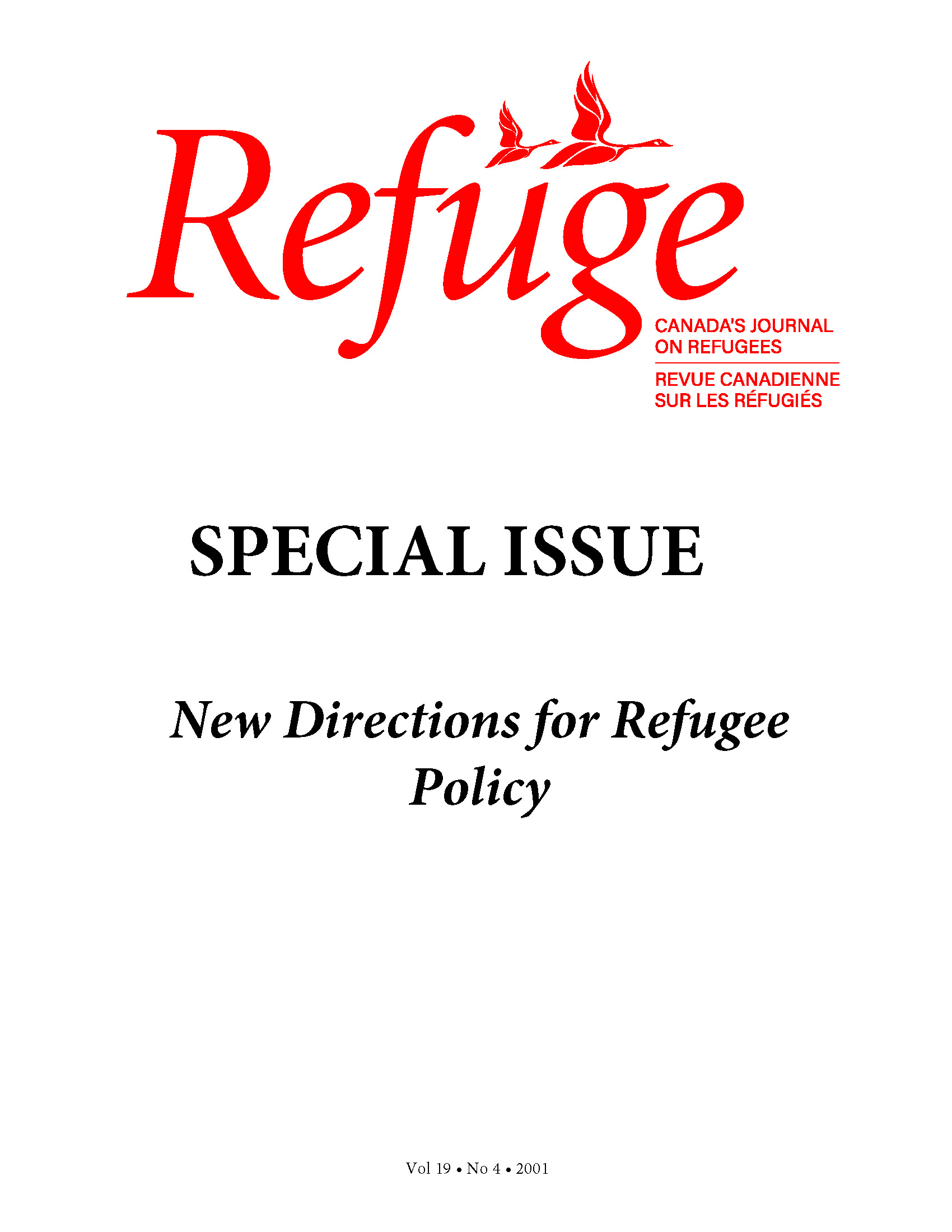Refugee Determination Complexity
DOI:
https://doi.org/10.25071/1920-7336.21214Keywords:
Canada, refugee policy, refugee determination, Bill C-31, policy recommendationsAbstract
Refugee determination systems are complex and unfair. This combination is surprising. Why has government after government in Canada and around the world generated refugee determination systems that are both complex and unfair? The answer is that governments intrude into systems that would otherwise be both simple and fair, in order to assert control. They assert control in order to achieve other, non-refugee protection objectives. These non-refugee protection objectives are inappropriate for the design of a refugee determination system. A refugee determination system should be devised with four objectives in mind: fairness, internal consistency, simplicity, and compliance with international standards. The article examines Bill C-31 and makes recommendations for its improvement with these objectives in mind.
Metrics
Downloads
Published
How to Cite
Issue
Section
License
Copyright (c) 2001 David Matas

This work is licensed under a Creative Commons Attribution-NonCommercial 4.0 International License.
Refuge authors retain the copyright over their work, and license it to the general public under the Creative Commons Attribution-Non Commercial License International (CC BY-NC 4.0). This license allows for non-commercial use, reproduction and adaption of the material in any medium or format, with proper attribution. For general information on Creative Commons licences, visit the Creative Commons site. For the CC BY-NC 4.0 license, review the human readable summary.







